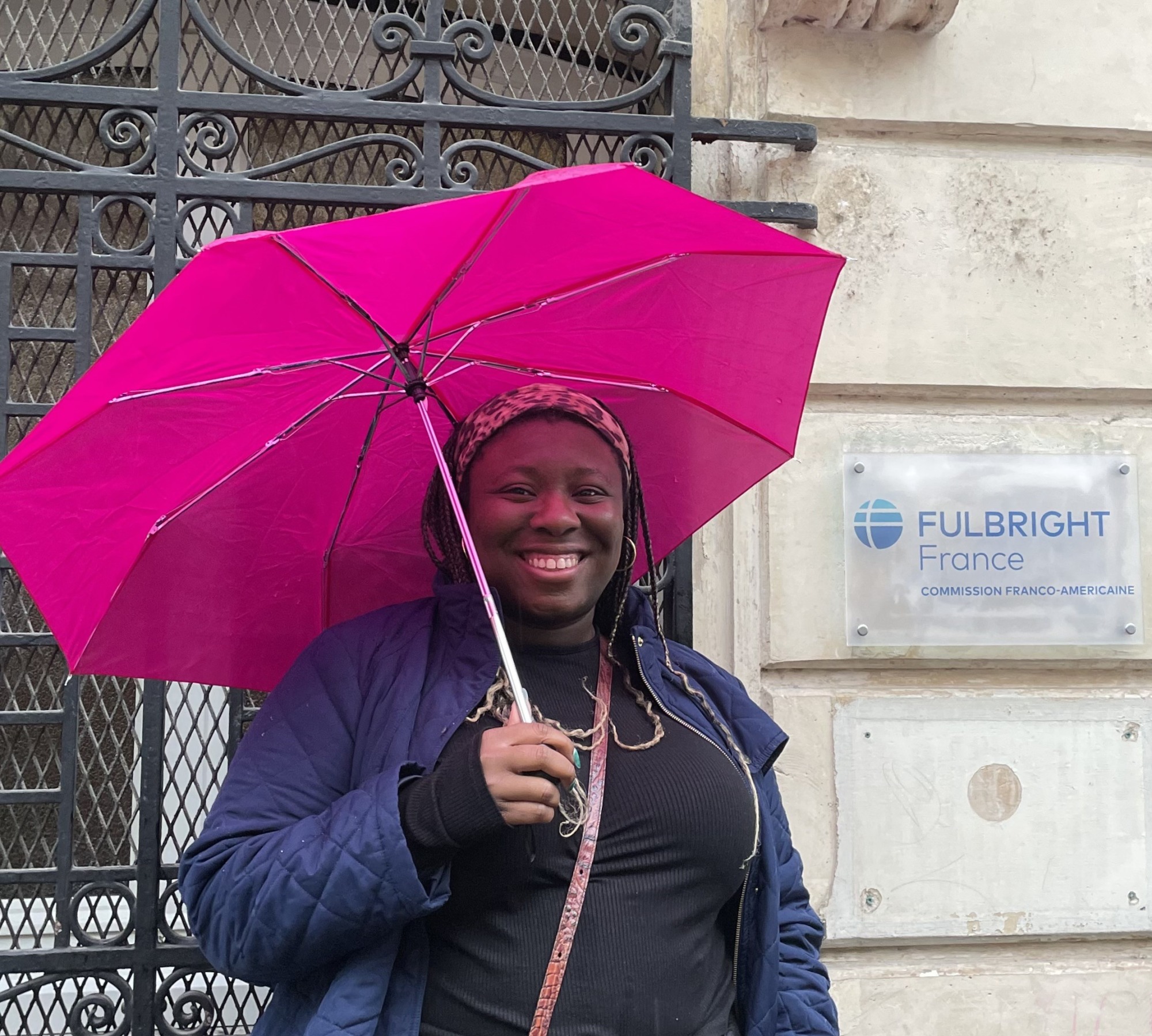 “It's wonderful to have a chance to study those populations in depth as a Fulbright Scholar. Being in France gives me access to literary, cultural, and historical material that I wouldn't be able to get anywhere else,” says Sobande. “It's an amazing opportunity to network with scholars in France and build an academic community that spans across the Anglophone and the Francophone context.”
“It's wonderful to have a chance to study those populations in depth as a Fulbright Scholar. Being in France gives me access to literary, cultural, and historical material that I wouldn't be able to get anywhere else,” says Sobande. “It's an amazing opportunity to network with scholars in France and build an academic community that spans across the Anglophone and the Francophone context.”
As part of her Fulbright fellowship, Semilore Sobande is developing the French-focused segments of her research by gathering archival and primary source materials that will support her dissertation’s transition into a book. Her work includes research at the Bibliothèque Nationale and the Archives Nationales in Paris, as well as numerous cultural and literary archives across the city.
Under the mentorship of Professor Romy Sánchez, she serves as a visiting researcher at Le Centre International de Recherches sur les Esclavages et Post-Esclavages (CIRESC), a center established by the French National Centre for Scientific Research.
With Paris as her base, she is tracing the lives of black Francophone women through letters in the historical archives. She notes that the vast majority of archival documents about the French colonial empire—most of which are not digitized— are located in Aix-en-Provence, at the Archives nationales d’outre-mer (ANOM). Sobande will also travel to Aix to work with the materials in ANOM’s ministerial archives from the Second Colonial Empire, specifically documents from Haiti (formerly Saint Domingue), Algeria, Guadeloupe, and Tunisia.
Sobande’s research probes how literature engages with history, drawing from Black feminist theory, Black studies, and postcolonial theory to analyze race and gender in Caribbean, African American, and African literatures. Her work considers how contemporary depictions of Black women are often repurposed to serve narratives of white cultural nostalgia, which she suggests prioritizes the preservation of an idealized white modernity over historical accuracy.
Before coming to Brown, Sobande earned undergraduate degrees in African and African-American Studies and Comparative Literature. Her passion for historical archives began while working as a student research assistant at Stanford’s Martin Luther King, Jr. Research and Education Institute.